Make it yours
Every experience is customised to be just right for you.
WILDLIFE VOLUNTEERING: THE RED FLAGS MOST PEOPLE MISS
Learn more
Imagine falling into bed after a day tracking lions, elephants, cheetahs and rhinos through the bush, having learnt about the unique challenges these species face.
Travelling to three very different wildlife conservation projects across two countries, this experience gives you a rare chance to explore the diverse natural beauty of Africa’s landscapes and wildlife.
You’ll have the chance to discover the joy of meaningful work with real conservation value, and life without the distractions of modern society. You’ll have time to reset and reconnect with nature. You’ll also have the opportunity to learn about and protect wildlife and make new memories that will stay with you for a lifetime.
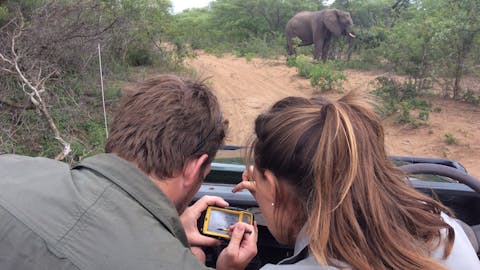
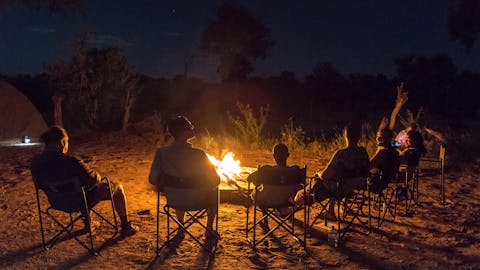
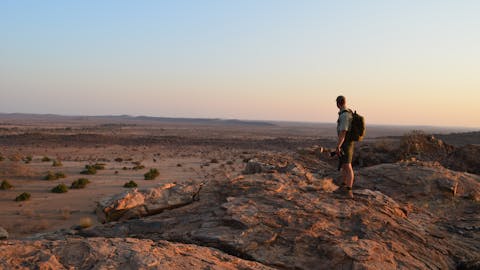
Discover how the size of a conservation area impacts wildlife management and monitoring. Join conservation efforts in the Okavango and Greater Kruger - two of the last habitats in Africa large enough to support thriving populations of elephants and lions. And the Maputaland Centre of Endemism - a biodiversity hotspot home to an incredible array of rare species and ecosystems (including a critically endangered sand forest).
Help professional field researchers monitor the population sizes and movement patterns of various keystone species, from the iconic Big 5 to elusive smaller animals such as pangolins and hyenas - giving you a broader view of African ecosystems.
Contribute to anti-poaching initiatives by monitoring vulnerable species, sharing vital information in real time with ranger teams, and assisting with periodic conservation measures like rhino horn trimming, invasive plant removal and bush clearing.
Enjoy guided bushwalks through remote areas inaccessible to vehicles. You’ll learn how to track animals on foot, gain insights into their behaviours, and immerse yourself in the sights and sounds of wild Africa.
By assisting the expert team with wildlife monitoring and habitat management, you’ll lend physical and financial support to projects that partner with the WWF, Endangered Wildlife Trust (EWT), and Botswana’s Department of Wildlife and National Parks.
Get a taste for adventure with included activities like night drives to observe nocturnal animals and a visit to an animal rehabilitation centre - plus optional excursions including a canoe experience on the River Kwai, and an airplane flight over the Delta.
Stay in remote camps within different conservation areas, offering breathtaking views and a comfortable base from which to explore the surrounding wilderness.
You can book this experience as it is. Or, you can customise it to be just right for you.
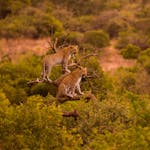
Discover Botswana’s awe-inspiring Okavango region, home to the largest population of elephants on Earth and one of the last strongholds of the endangered African wild dog. In this UNESCO World Heritage Site, you’ll join an intrepid research team exploring a vast intact ecosystem, monitor the amazing species that call this place home - and pick up some real bushcraft skills along the way.
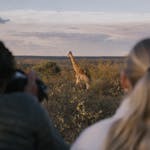
Explore the Greater Kruger Park in a way few others ever do… on foot. Alongside an expert guide, you’ll step into one of the few remaining ecosystems large enough to host a mega population of lions, growing numbers of elephants, plus wild dogs, black and white rhino and other threatened species. Together, you’ll carry out vital practical conservation, monitor iconic species and immerse yourself in the untamed beauty of this UNESCO Biosphere Reserve.
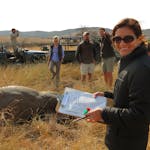
Go behind the scenes in a Big 5 wildlife conservancy where you’ll monitor lions, elephants, rhinos, pangolins and other species in their natural habitats. Part-owned by the local Zulu community, Phinda is a true conservation success story - and plays a vital role in the WWF’s efforts to reintroduce black rhinos across more parts of Africa.
You’ll support the project teams in real hands-on wildlife monitoring. Depending on the conservation priorities at the time, this will include a range of the following activities.
You’ll help the project teams monitor and research wildlife to understand the movements, populations and behaviours of Africa’s iconic and elusive species.
You will get to observe and assist:
Your work will contribute directly to species-focused initiatives aimed at long-term protection of vulnerable and endangered animals.
You could observe or assist:
In addition to research and monitoring, you’ll gain insight into conservation strategies used to sustain healthy and balanced ecosystems.
You could observe, assist, or learn about:
While participating in fieldwork, you’ll get the chance to learn practical skills essential for life and research in the bush.
You will get to observe or assist:
You’ll learn about wildlife behaviour, biology, ecology, and conservation issues. Depending on the projects’ work at the time, this will include a range of the following topics.
Related experiences
Explore programs similar to this one.
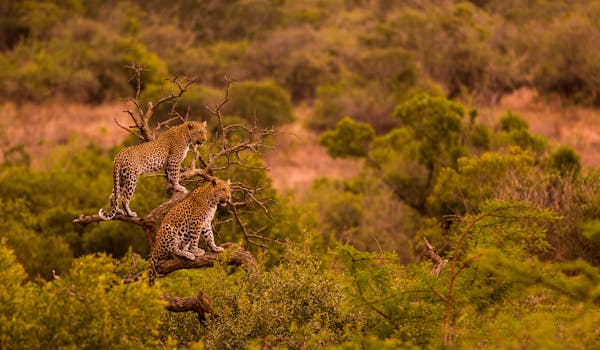
Explore a variety of animals in the Okavango Delta, home to the largest elephant population on Earth
View details for Okavango Wilderness Project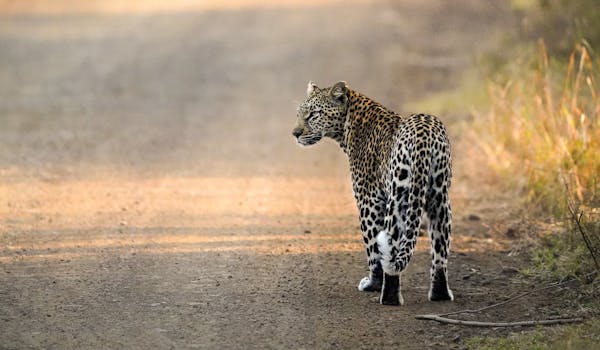
Get a unique behind the scenes experience in one of the largest and most important conservation areas in Africa
View details for The Vikela Kruger Conservation Experience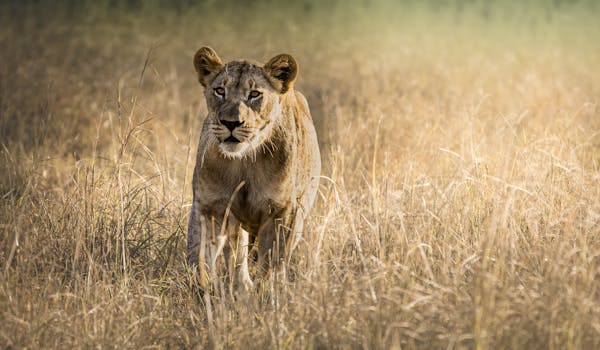
Go behind the scenes on a Big 5 reserve and join one of the biggest conservation success stories
View details for Phinda Wildlife Research Project